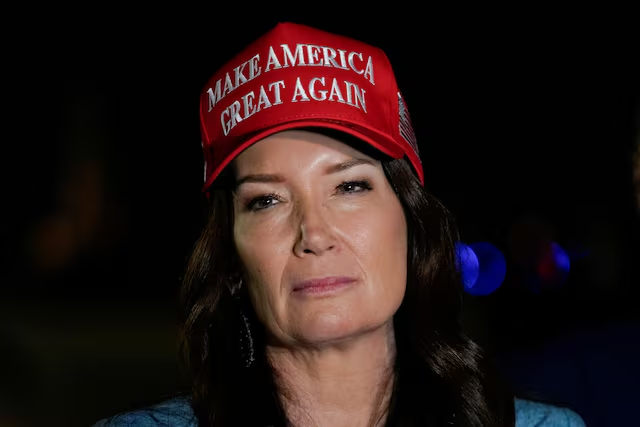- Get link
- X
- Other Apps
- Get link
- X
- Other Apps
Agriculture Secretary Brooke Rollins has reinforced the Trump administration’s hardline stance on immigration, announcing there will be “no amnesty” for undocumented agricultural workers. Her comments come amid increased deportation efforts targeting immigrants residing illegally in the U.S., many of whom are essential to the farming sector. Rollins insisted on the need for a “100% American workforce,” claiming the answer lies in automation, structural reform, and tapping into domestic labor sources specifically pointing to the 34 million able-bodied adults enrolled in Medicaid.
read also: China Issues Stern Warning to Trump Over Tariff Threats
This statement has stirred controversy, as many Medicaid recipients already work, are students, or are unable to work due to health reasons. The Trump administration recently enacted a law requiring Medicaid beneficiaries to meet work requirements, which the Congressional Budget Office predicts could result in nearly 12 million people losing their insurance coverage.
Rollins’s remarks have raised alarms within the agricultural industry. Farmers have repeatedly warned that deporting undocumented workers en masse would severely disrupt the U.S. food supply chain. Although the administration briefly signaled a pause in immigration raids at farms earlier in the year, that decision was later reversed. Separately, Labor Secretary Lori Chavez-DeRemer mentioned the creation of a new office to support farmers and ranchers, though no further details were given. The Department of Labor also oversees the H-2A program, which provides seasonal visas for agricultural workers.
In the same press conference, Brooke Rollins revealed that the USDA will soon take steps to limit farmland ownership by foreign adversaries, specifically naming China. She indicated that an executive order is being prepared to restrict future acquisitions and potentially reverse existing land ownership arrangements involving Chinese-owned companies like Syngenta and Smithfield Foods. The White House is reportedly reviewing various federal authorities to determine how to enforce such actions.

This stance has drawn backlash from China’s foreign ministry, which accused the U.S. of politicizing trade and investment and imposing discriminatory practices. In 2023, Arkansas used state law to compel Syngenta to sell 160 acres of land, setting a precedent for state-level action on the issue. Currently, 26 states have some form of restriction or ban on foreign entities owning farmland, though several of these laws face legal disputes.
Despite growing political concern, only about 3.4% of U.S. farmland is foreign-owned, with Canada holding the largest share. Rollins announced she would be joining the Committee on Foreign Investment in the United States (CFIUS), an interagency panel that assesses national security threats related to foreign investments.
Her appointment signals the administration’s intent to involve agriculture more deeply in national security evaluations. Bipartisan support in Congress for restricting foreign ownership of farmland reflects increasing worries about food security and sovereignty. As the debate over land rights, immigration, and labor intensifies, U.S. agricultural policy finds itself at the center of both domestic and geopolitical tensions.
- Get link
- X
- Other Apps

Comments
Post a Comment